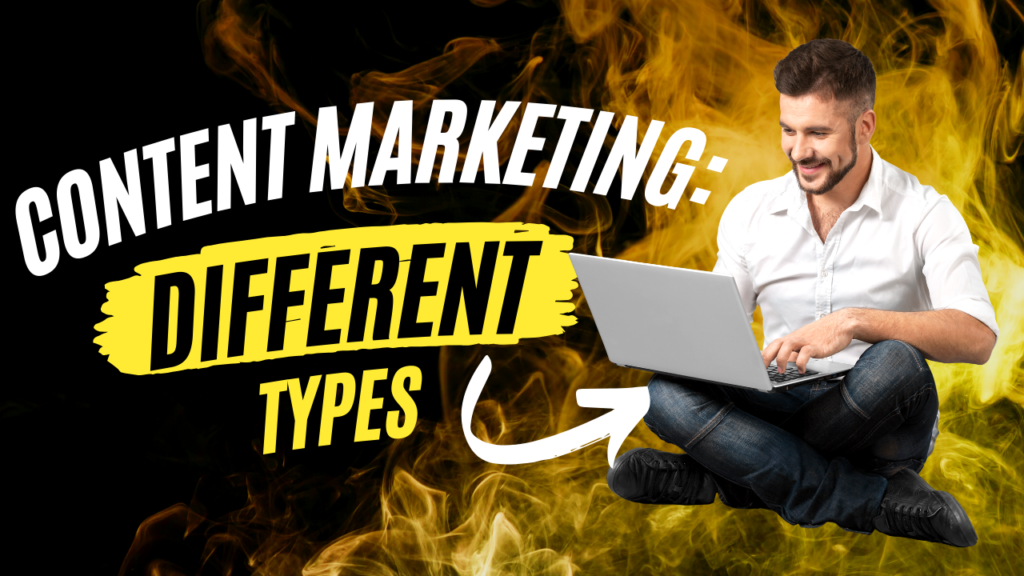What is Content Marketing?
Content marketing refers to the strategic creation and distribution of valuable, relevant content to attract and retain a clearly defined audience, driving profitable customer action. As opposed to traditional product-focused marketing, content marketing aims to establish a brand as a trusted leader and go-to resource for customers. With the rise of digital content consumption across all platforms, content marketing has become an essential component of an integrated marketing strategy.
At its core, content marketing involves creating and sharing various types of media to engage customers, build awareness, and position a brand as an authority in its field. The content provides value for the reader, focuses on their interests and needs, and subtlety communicates key brand messages. In doing so, content marketing enables brands to attract and convert new leads over time through relationship-building.
Compared to traditional advertising, content marketing emphasizes audience-focused storytelling over direct sales messaging. Rather than a hard sell, it nurtures long-term relationships, generating loyal customers. With consistent, high-quality content tailored to the target audience, brands can increase website traffic, improve search rankings, educate customers, and drive conversions across the buyer’s journey.
Types of Content

There are countless types of media that can be utilized for content marketing, limited only by one’s creativity. All content should focus on creating value and catering to the target audience. Some of the most popular content marketing formats include:
Blog Posts and Long-Form Articles
These informative posts and articles form the foundation of most content strategies. Optimized for specific keywords and buyer interests, blog content shares knowledge, insights, and thought leadership.
Videos, Live Streams and Webinars
Both live and recorded video engage modern digital audiences effectively. Webinars and live streams enable real-time interaction and education.
Podcasts and Audio
Podcasting has exploded in popularity in recent years. Audio content provides value for busy audiences on-the-go while building brand image via hosts.
Infographics and Presentations
Visual content can simplify complex information. Infographics and slide decks can be highly shareable across platforms.
Ebooks, Whitepapers and Guides
In-depth written reports demonstrate expertise while capturing lead information in exchange for content access.
The possibilities are endless, limited only by imagination and resources. Video series, courses, newsletters, case studies, games, quizzes, and more can educate and engage for content marketing. Every piece of content should focus on audience needs and preferences.

Content Creation and Optimization
For long-term success, content cannot be an afterthought. It requires research, planning, creation, optimization, and promotion. Brands need a documented content strategy with editorial calendars mapping out themes and media formats.
To attract visitors in a crowded marketplace, content must be discoverable. SEO optimization through metadata, keywords, tags, alt text, backlinks, and XML sitemaps improves findability. Loading speed and mobile-responsiveness also impact rankings. Creative formats and compelling writing styles engage users once they arrive. Calls-to-action should direct viewers to conversion goals.
Useful, accurate and up-to-date content builds authority and trust for return visits. Proofreading all content before publication and fixing errors maintains quality standards. Content should solve user pain points through education, not just promote products. Optimization never ends—analytics reveal opportunities for improvement.
Promoting materials through social media, email, collaborations, paid ads and content syndication to third-party publishers expands reach. Pitching high-value content to relevant bloggers and journalists can earn backlinks and press coverage.

Measuring Content Marketing Success
The true indicators of content marketing return on investment require both quantitative and qualitative assessment. Key metrics provide hard data, while market research delivers customer perspective.
On the quantitative side, content managers can track unique visitors, social shares, links and backlinks, time on page or video, click-through rates, lead generation and sales conversions. Comparison to costs for production and promotion determines ROI.
However, meaningful measurement goes deeper through surveys, interviews, focus groups and reviews. Brand lift, audience awareness, customer satisfaction, problem resolution, trustworthiness and advocacy ratings offer additional context. Combining quantitative and qualitative data paints a full picture.
Powerful web analytics tools provide user behavior insights and can pinpoint content contributions to conversions. Meanwhile, CMS platforms contain built-in SEO components. Social media listening tools monitor online conversations and engagement. Marketing automation software tracks lead acquisition results. Tagging links aids attribution.

Content Promotion Channels
Without promotion, even amazing content gathers dust unseen. Distribution across digital networks and platforms shares content with target users where they already consume information.
The company website and blog offer a hub for housing all content in one discoverable, branded location. SEO optimized with calls-to-action to channel visitors to conversion goals. Social media expands reach to networked followers. 90% of marketers use social media for content promotion, with Facebook, Twitter and LinkedIn dominating. Both organic and paid tactics work.
Email marketing integrates content links directly into subscriber inboxes. Personalized drip campaigns based on user behavior improve open and click-through potential. Pay-per-click ads, guest posts on authority websites, and content syndication to third-party publishers buy instant exposure opportunities. Retargeting leverages cookies to re-engage visitors.
Common Content Marketing Challenges
An impactful strategy must overcome hurdles in producing standout content. Top challenges include:
- High-Quality Original Content: Well-researched, error-free content demonstrating expertise builds authority. Subpar content undermines trust. Manual review processes uphold standards.
- Standing Out Creatively: With millions of blogs and videos competing for attention, creativity makes content shareable on social media. Interactive formats captivate audiences.
- Optimizing Discoverability: Great content unfound by search engines and audiences fail to achieve goals. SEO and promotion foster discovery by aligned users.
- Tracking Contributions: Confirming content drives conversions helps justify costs. Clear CTAs and tagged links enable analytics tracking of each asset.
- Consistency: Consistent publishing cultivates return visits. Readers expect reliable content aligned to interests. Mapping editorial calendars aids planning.

Content Marketing Strategy Tips
With a strategic approach, brands can leverage content marketing to increase awareness, trust, and customer lifetime value. Useful tips include:
- Defining target audience personas through market research enables precise tailoring of messaging and content formats to match their consumption preferences, pain points, and journey stages.
- Establishing clear content creation workflows facilitates consistent publishing. Technology streamlines collaboration across teams of writers, designers and managers.
- Data-informed goals for lead generation, traffic, and sales at each phase measures performance. Analyze metrics to optimize efforts for efficient ROI.
- Prioritizing search visibility through keyword research and SEO best practices aids discovery by those seeking related information.
- Building authority and trustworthiness by delivering honest, in-depth value focused on helping customers, not product promotion.
The possibilities of content marketing extend as far as creativity allows. As platforms and formats continue evolving, early adopters gain advantage. With audiences increasingly seeking authentic connection and education from brands, content marketing delivers meaningful value.
To know more about digital marketing, please watch this video about the best digital marketing courses:
Frequently Asked Questions About Content Marketing
How much should my business invest in content marketing?
There are no fixed costs, as budgets vary widely by company size and goals. Best practice is to allocate enough resources to publish valuable content consistently. Track sales/leads to quantify ROI and optimize spending.
What skills does my team need to execute content marketing successfully?
Core competencies include writing, editing, graphic design, search optimization, analytics, social media engagement and paid media buying. Teams can develop these internally or outsource where lacking.
How can I promote my business’s content effectively?
Leverage owned channels like your website, blog and social media plus email subscribers. Pitch content to relevant media outlets for earned coverage. Promoted social ads, pay-per-click campaigns and content partnerships extend reach.
How often should I be publishing content?
Most brands publish blog content 1-2X per week for continual value. Social media requires daily consistency for engagement. Lengthier content like videos or ebooks can be monthly or quarterly. Set realistic schedules with editorial calendars.
What mistakes should I avoid with content marketing?
Avoid overly promotional “salesy” content, publishing before ensuring quality/usefulness, inconsistent messaging, failing to optimize for search visibility, not tracking measurable results and not actively promoting. Provide genuine value for audiences.
